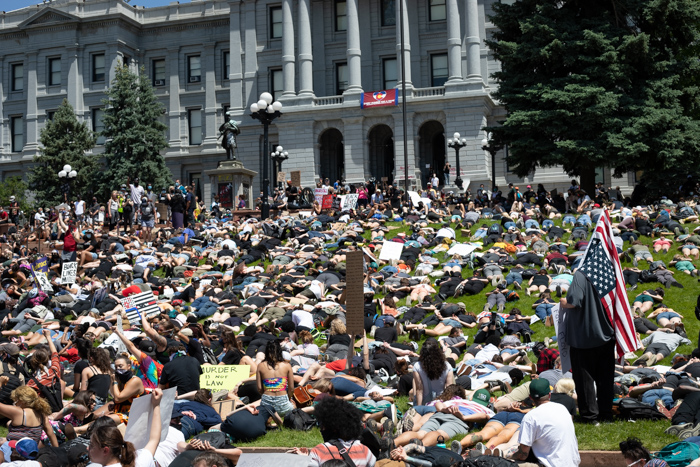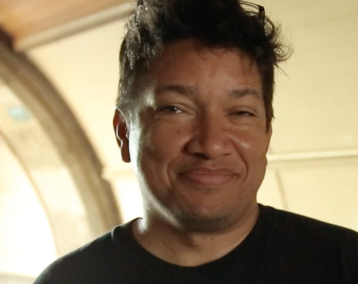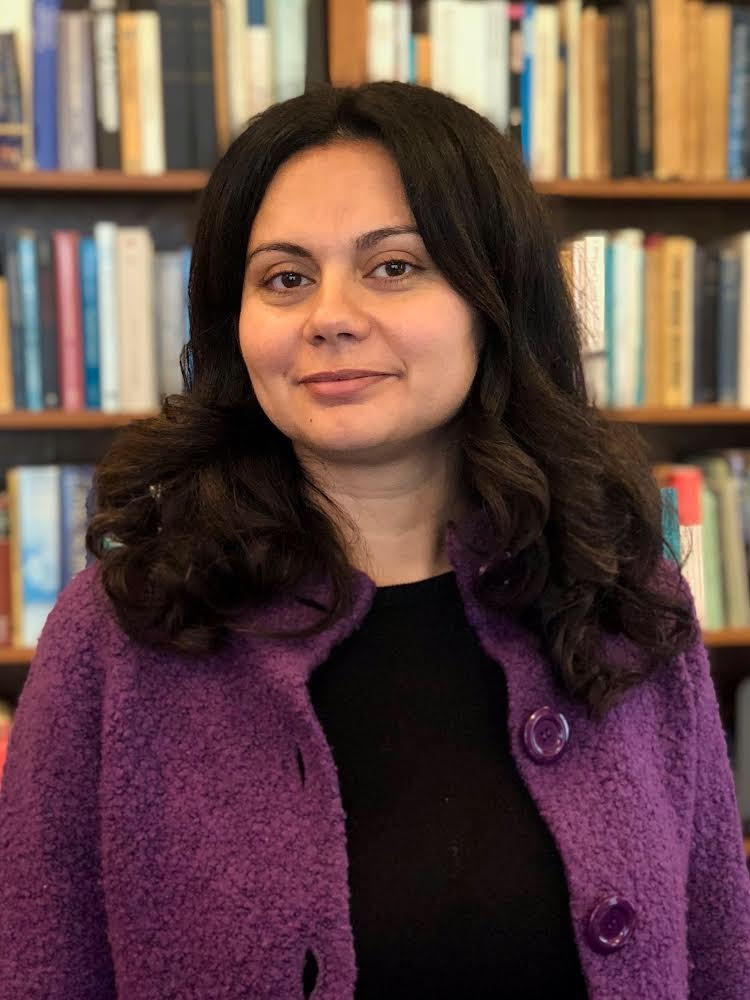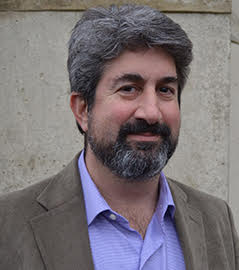Monuments to History: How the US and Germany Document Their Past, and the Impact on Present Day Race Relations
Co-sponsored by the Department of Fine Arts at Brandeis University
Monday, September 14, 2020
12-1:30 pm Eastern Time (US)
Zoom Webinar
You can watch a recording of the complete event by clicking the button above.
About the Event
 The George Floyd Uprising and Black Lives Matter Movement have brought renewed attention to the more than 1,500 Confederate statues around the US, and raised questions about how a nation should deal with its own history. Germany is often praised for its Vergangenheitsbewältigung, the way in which it has approached or dealt with its own history.
The George Floyd Uprising and Black Lives Matter Movement have brought renewed attention to the more than 1,500 Confederate statues around the US, and raised questions about how a nation should deal with its own history. Germany is often praised for its Vergangenheitsbewältigung, the way in which it has approached or dealt with its own history.
What different approaches to history can we identify in Germany and the United States? How has each country approached documenting its history in general, and how does Germany’s approach to WWII and the Holocaust compare to the US approach to slavery and the Civil War? What is the connection between these approaches to history and current race relations in each country?
Photo: Black Lives Matter protestors in front of the Colorado State Capitol in Denver on May 30, 2020. Photo Credit: Emmett Williams
About the Speakers
 After a decade in broadcast television, award-winning producer and multimedia artist Emmett Williams reshaped his career to start his own international production company, Mission Man Media, to use media as a lens for activism. His goal is to educate and inspire audiences about the intersection of social, racial and environmental justice.
After a decade in broadcast television, award-winning producer and multimedia artist Emmett Williams reshaped his career to start his own international production company, Mission Man Media, to use media as a lens for activism. His goal is to educate and inspire audiences about the intersection of social, racial and environmental justice.
Since 2006, Emmett has produced dozens of documentaries, web series, podcasts, and partnered with over 30 nonprofits to help tell their story. Working on every continent (except Antarctica, because cold) he’s told the story of grieving Brazilian mothers who have lost their sons to police violence, produced a web series about climate change in Africa, portrayed threatened fishing communities in Alaska, documented illegal logging in the Amazon, created a Black Lives Matter web series, been part of large scale art performances in Europe and filmed at Standing Rock, Washington, DC inauguration protests, and the George Floyd uprising.
 Dr. Sultan Doughan is an anthropologist who works on questions of citizenship, religious difference, racialization of Jewish and Muslim communities, and political equality in contemporary Germany. She is particularly concerned with how genocide commemoration and the question of justice, transitional and racial, intersect and give rise to secular moral and ethical claims in public. Doughan has conducted field research among civil society organizations that were funded to combat Islamic extremism by teaching tolerance through the memory of the Holocaust.
Dr. Sultan Doughan is an anthropologist who works on questions of citizenship, religious difference, racialization of Jewish and Muslim communities, and political equality in contemporary Germany. She is particularly concerned with how genocide commemoration and the question of justice, transitional and racial, intersect and give rise to secular moral and ethical claims in public. Doughan has conducted field research among civil society organizations that were funded to combat Islamic extremism by teaching tolerance through the memory of the Holocaust.
Dr. Doughan is currently a postdoctoral fellow at the Elie Wiesel Center for Jewish Studies, Boston University. During the fall semester of 2020 she is teaching a course on memorials and the question of transitional justice with a special focus on post-Holocaust Europe and post-Slavery US. She is currently working on her first book tentatively called Converting Citizens. German Secularism and the Politics of Tolerance after the Holocaust.
We are excited to announce a third speaker for the event:
 Max Page is Professor of Architecture, and Director of Historic Preservation Initiatives at the University of Massachusetts in Amherst. Professor Page directors the Master of Design in Historic Preservation program, which trains students for careers in historic preservation and related fields. He received his education at Yale University (BA, magna cum laude in History, 1988) and from the University of Pennsylvania (PhD, 1995).
Max Page is Professor of Architecture, and Director of Historic Preservation Initiatives at the University of Massachusetts in Amherst. Professor Page directors the Master of Design in Historic Preservation program, which trains students for careers in historic preservation and related fields. He received his education at Yale University (BA, magna cum laude in History, 1988) and from the University of Pennsylvania (PhD, 1995).
Professor Page teaches and writes about the history of cities and architecture. He has written or edited eight books on subjects ranging from the destruction and rebuilding of New York City, in reality and in the imagination, the urbanist Jane Jacobs, the history of historic preservation, the architecture of the UMass campus, and the future of higher education.
Professor Page is very active in fighting for the advancement of public education in Massachusetts. He was president of the Massachusetts Society of Professors, the faculty and librarian union at UMass Amherst and has served in a variety of roles with the Massachusetts Teachers Association, the union of 110,000 public school educators in the state, and PHENOM, the Public Higher Education Network of Massachusetts.
This past year he was a Rome Prize Fellow at the American Academy in Rome, working on a book on the future of historic preservation.